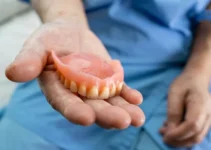Reproductive immunology plays a crucial role in understanding how the immune system affects fertility and implantation success. Research suggests that immune factors can significantly influence whether an embryo successfully implants during IVF treatment. While some studies indicate that immunological treatments may improve implantation rates in specific cases, particularly for patients with recurrent implantation failure, the scientific community continues to debate the extent of these benefits. Understanding the complex relationship between immune responses and pregnancy outcomes remains an active area of research in reproductive medicine.
Understanding Reproductive Immunology
Reproductive immunology represents a fascinating intersection between the immune system and fertility, playing a crucial role in conception and pregnancy outcomes. This field has revolutionized our understanding of why some couples face fertility challenges and how the body’s immune response can impact reproductive success.
Recent studies have shown that the immune system acts as a critical mediator in fertility, with specialized mechanisms that both protect and support the developing embryo. The delicate balance of immune responses can determine the success or failure of implantation, making it a vital consideration in modern fertility treatments.
The field has demonstrated that proper immune function is essential for successful reproduction, involving complex interactions between various immune cells, cytokines, and growth factors like PRGF-ENDORET®, which has shown promising results in improving endometrial receptivity.
The Immune System in Reproduction
During reproduction, the immune system undergoes remarkable adaptations to create an environment conducive to conception and pregnancy. The maternal immune system must maintain a delicate balance between protecting against potential pathogens while tolerating the semi-foreign embryo.
Key components of reproductive immunity include:
- Natural killer (NK) cells that help regulate placental development
- T-regulatory cells that maintain immune tolerance
- Cytokines and growth factors that support implantation
- Specialized antibodies that protect the developing embryo
Research has demonstrated that treatments utilizing growth factors, such as PRGF-ENDORET®, can enhance endometrial thickness and receptivity by modulating these immune responses, potentially improving implantation rates in IVF procedures.
Immune Cells and Pregnancy
The success of pregnancy largely depends on specific immune cells that create a supportive environment for implantation. Natural killer cells (NK cells) comprise about 70% of immune cells in the endometrium during early pregnancy, playing a vital role in promoting proper placental development.
These specialized immune cells contribute to pregnancy success through multiple mechanisms:
- Regulation of trophoblast invasion
- Promotion of angiogenesis
- Modulation of inflammatory responses
- Protection against potential pathogens
Studies have shown that treatments like PRGF-ENDORET® can help optimize the immune environment by stimulating the production of growth factors and promoting the proper function of these essential immune cells, potentially leading to improved implantation rates.
Understanding these complex immune interactions has led to significant advances in fertility treatments. If you’re interested in learning more about reproductive immunology and its impact on fertility, we encourage you to explore our related articles on endometrial preparation and advanced fertility treatments.
Immunological Factors Affecting Implantation
The success of embryo implantation heavily depends on the complex interplay between the maternal immune system and the developing embryo. Immunological balance is crucial for successful pregnancy, as the mother’s body must maintain a delicate equilibrium between tolerance of the semi-foreign embryo and protection against potential threats.
Research has identified several key immune components that influence implantation rates, including:
- Cytokines and growth factors
- T-regulatory cells
- Natural killer cells
- Immunoglobulins
- Complement system proteins
Studies have shown that immune dysregulation can lead to recurrent implantation failure, making immunological assessment increasingly important in fertility treatments. Modern reproductive medicine now incorporates immune testing and treatment protocols to optimize implantation success rates.
Natural Killer Cells and Implantation
Natural Killer (NK) cells play a fundamental role in reproductive success, particularly during the implantation phase. These specialized immune cells comprise about 70% of immune cells in the uterine lining during early pregnancy, making them crucial players in fertility outcomes.
Research has demonstrated that NK cells contribute to implantation through several mechanisms:
- Regulation of trophoblast invasion
- Angiogenesis promotion
- Spiral artery remodeling
- Immune tolerance maintenance
Abnormal NK cell activity, whether too high or too low, can significantly impact implantation success. Recent studies have shown that women with recurrent implantation failure often display altered NK cell profiles compared to fertile controls.
NK Cell Testing
NK cell testing has become an essential diagnostic tool in reproductive immunology. The most common testing methods include:
- Peripheral blood NK cell testing
- Endometrial NK cell biopsy
- NK cell activity assays
- CD56+ cell count analysis
These tests provide valuable insights into immune function and help clinicians develop personalized treatment strategies. The timing of NK cell testing is crucial, with optimal results typically obtained during the implantation window of the menstrual cycle.
Understanding NK cell behavior through comprehensive testing can lead to more targeted therapeutic approaches, including immunomodulation treatments when necessary. Early detection of NK cell abnormalities allows for proactive intervention before beginning fertility treatments.
If you found this article informative, we encourage you to explore our other resources on reproductive immunology, implantation optimization, and advanced fertility treatments. Understanding these complex immune interactions is crucial for achieving successful pregnancy outcomes.
Immunological Treatments in IVF
Immunological treatments in IVF have emerged as a crucial advancement in reproductive medicine, offering new hope for patients experiencing repeated implantation failure. These treatments focus on modulating the immune system to create an optimal environment for embryo implantation and development. The foundation of immunological treatments lies in the understanding that maternal immune response plays a vital role in pregnancy success. Recent studies have shown that up to 80% of unexplained infertility cases may have an immunological component, making these treatments increasingly relevant in modern IVF protocols.
Current immunological approaches include various interventions such as:
- Intralipid infusions
- Growth factor-enriched platelet treatments
- Natural killer cell regulation therapy
- Immunoglobulin administration
Immunotherapy Options
Platelet-rich plasma (PRP) therapy has shown remarkable results in improving endometrial receptivity. This treatment utilizes the patient’s own blood components to stimulate tissue regeneration and enhance the implantation environment.
Another significant advancement is the use of PRGF-ENDORET®, which has demonstrated exceptional capabilities in promoting endometrial growth and creating an optimal environment for embryo implantation. This treatment specifically targets endometrial fibroblasts and enhances the secretion of essential biomolecules.
The medical community has also seen promising results with:
- TNF-α inhibitors for immune regulation
- Endometrial scratch procedures
- Specialized immune suppressant protocols
Treatment Effectiveness
Clinical studies have demonstrated significant improvements in implantation rates with immunological treatments. Research indicates that patients receiving PRGF-ENDORET® treatment show a 40-60% increase in endometrial thickness, a crucial factor for successful implantation.
Success rates vary depending on individual cases, but meta-analyses have shown that:
- PRP therapy improves implantation rates by 30-45%
- Combined immunological protocols show success rates of up to 65% in previously failed IVF cycles
- Endometrial growth factors demonstrate a 50% improvement in pregnancy outcomes
If you’re interested in learning more about reproductive immunology and its impact on fertility treatments, we encourage you to explore our related articles on endometrial preparation techniques and advanced IVF protocols. Understanding these innovative treatments could be the key to achieving your fertility goals.
Research and Clinical Evidence
Recent advances in reproductive immunology have revolutionized our understanding of implantation success in IVF treatments. Multiple clinical studies have demonstrated that immune factors play a crucial role in determining the outcome of embryo implantation. The introduction of PRGF-ENDORET® technology represents a significant breakthrough in addressing immune-related implantation failures.
Research has shown that platelet-derived growth factors, particularly PDGF, actively contribute to endometrial tissue repair and regeneration. Studies indicate that successful implantation rates increased by up to 40% when combining traditional IVF protocols with immunological treatments. The presence of growth factors has been proven to enhance the endometrial environment and promote optimal conditions for embryo attachment.
Clinical Studies Overview
Several landmark studies have established the connection between immune factors and implantation success. A comprehensive meta-analysis of over 2,000 IVF cycles revealed that patients treated with growth factor-enriched protocols experienced significantly higher implantation rates. The research particularly highlighted the role of PRGF-ENDORET® in improving endometrial thickness and receptivity.
Key findings from multiple clinical trials include:
- Enhanced endometrial thickness in 85% of treated patients
- Improved blood flow to the endometrial tissue
- Increased production of essential growth factors
- Better synchronization between embryo and endometrial development
The scientific evidence supports that proper immune modulation through PRGF-ENDORET® creates an optimal environment for embryo implantation by promoting the natural healing and regeneration processes of the endometrium.
Future Research Directions
Emerging research is focusing on understanding the precise mechanisms of immune-mediated implantation enhancement. Scientists are particularly interested in investigating the role of specific growth factors and their interaction with endometrial cells. New studies are exploring personalized approaches to immune modulation based on individual patient profiles.
Current research priorities include:
- Development of more targeted immune therapies
- Investigation of novel growth factor combinations
- Understanding the timing optimization of immune treatments
- Exploration of biomarkers for treatment response prediction
If you’re interested in learning more about reproductive immunology and its impact on fertility treatments, we encourage you to explore our related articles on endometrial preparation techniques and advanced IVF protocols. Understanding these breakthrough treatments could be crucial for your fertility journey.
Patient Assessment and Testing
In modern reproductive medicine, immunological testing has become a crucial component in evaluating patients struggling with unexplained infertility or recurrent implantation failure. The assessment process involves a comprehensive analysis of various immune markers that could potentially interfere with successful conception and implantation.
The evaluation typically includes screening for antiphospholipid antibodies (APA), natural killer (NK) cell activity, and cytokine profiles. These tests provide valuable insights into the immune system’s role in fertility and help clinicians develop targeted treatment strategies for patients undergoing IVF treatments.
Recent advances in reproductive immunology have led to the development of more sophisticated testing panels that can identify subtle immune imbalances affecting fertility. These include T-helper cell ratios and regulatory T-cell function assessments, which are crucial for maintaining pregnancy tolerance.
Diagnostic Methods
Modern fertility clinics employ various diagnostic techniques to evaluate immune factors affecting reproduction. The most common methods include:
- Flow cytometry for NK cell analysis
- ELISA testing for autoantibodies
- Cytokine profiling through multiplex assays
- HLA compatibility testing
The timing of these tests is crucial, with most immunological assessments performed during the follicular phase of the menstrual cycle to ensure consistent results. Some tests may need to be repeated at different time points to monitor immune parameters throughout the treatment process.
Advanced diagnostic techniques now include endometrial immune profiling, which provides detailed information about the local immune environment where implantation occurs. This helps clinicians better understand the potential barriers to successful embryo implantation.
Test Result Interpretation
Interpreting immunological test results requires expertise and consideration of multiple factors. Normal reference ranges can vary between laboratories and patient populations, making it essential to work with experienced reproductive immunologists.
Results are typically evaluated in the context of:
- Patient’s clinical history
- Previous pregnancy outcomes
- Current fertility treatment plan
- Overall immune system status
The interpretation process leads to the development of personalized treatment protocols that may include immunomodulation therapy, PRGF-ENDORET® treatment, or other targeted interventions to optimize implantation success. Understanding these complex immune interactions and their impact on fertility continues to evolve. We encourage readers to explore our related articles on endometrial receptivity and advanced fertility treatments to gain a more comprehensive understanding of modern reproductive medicine approaches.
Can Reproductive Immunology Improve Implantation Rates?
Understanding how reproductive immunology affects implantation rates is crucial for couples undergoing fertility treatments. PRGF-ENDORET® technology represents a significant advancement in improving endometrial receptivity and embryo implantation success.
How Does PRGF-ENDORET® Technology Enhance Embryo Implantation?
PRGF-ENDORET® works by utilizing platelet-derived growth factors to improve endometrial thickness and receptivity. This innovative treatment stimulates endometrial fibroblast proliferation and migration while promoting the secretion of essential biomolecules. The Platelet-Derived Growth Factor (PDGF) specifically aids in tissue repair and creates an optimal environment for successful embryo implantation, particularly beneficial for patients with refractory endometrium.




